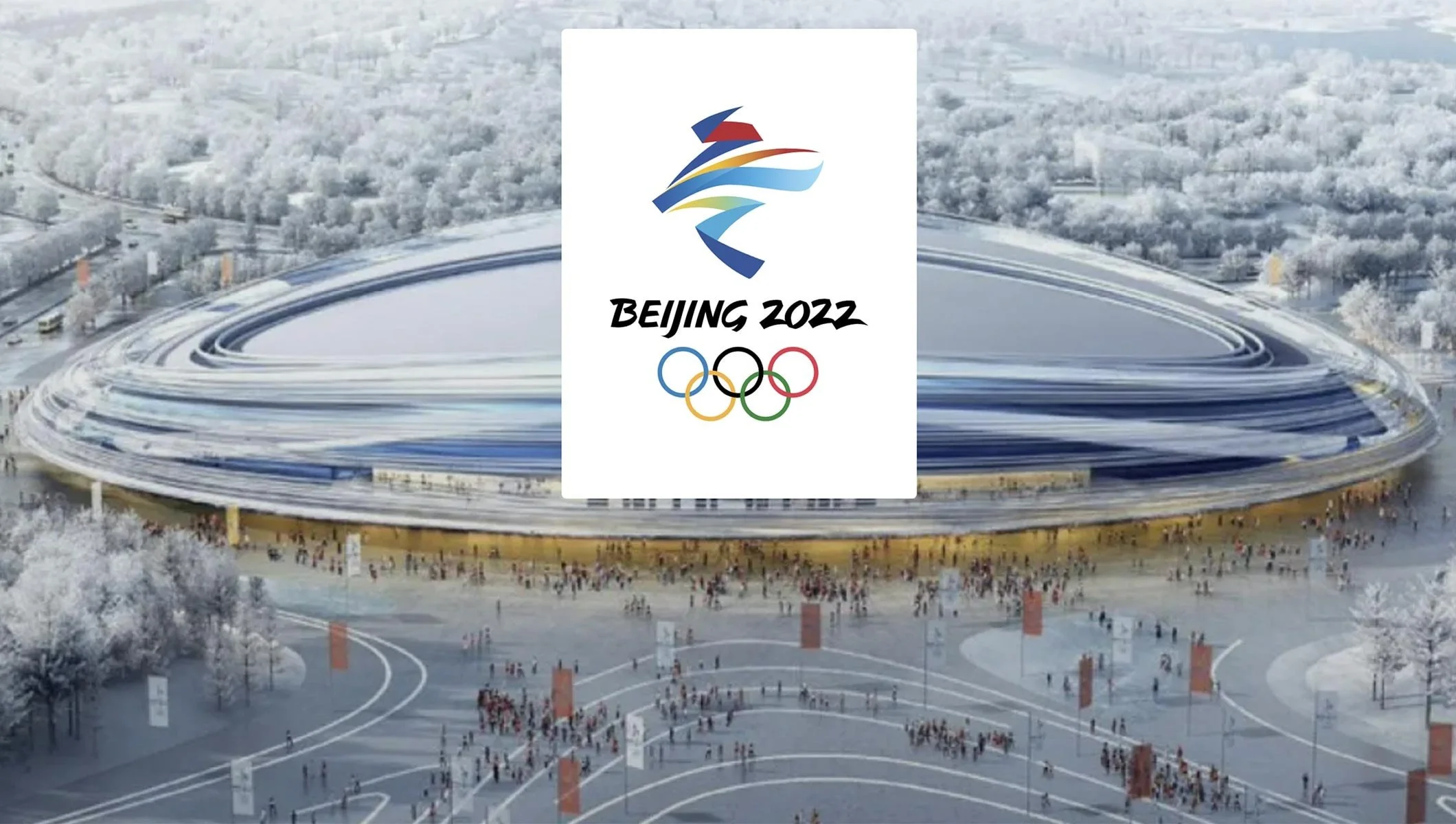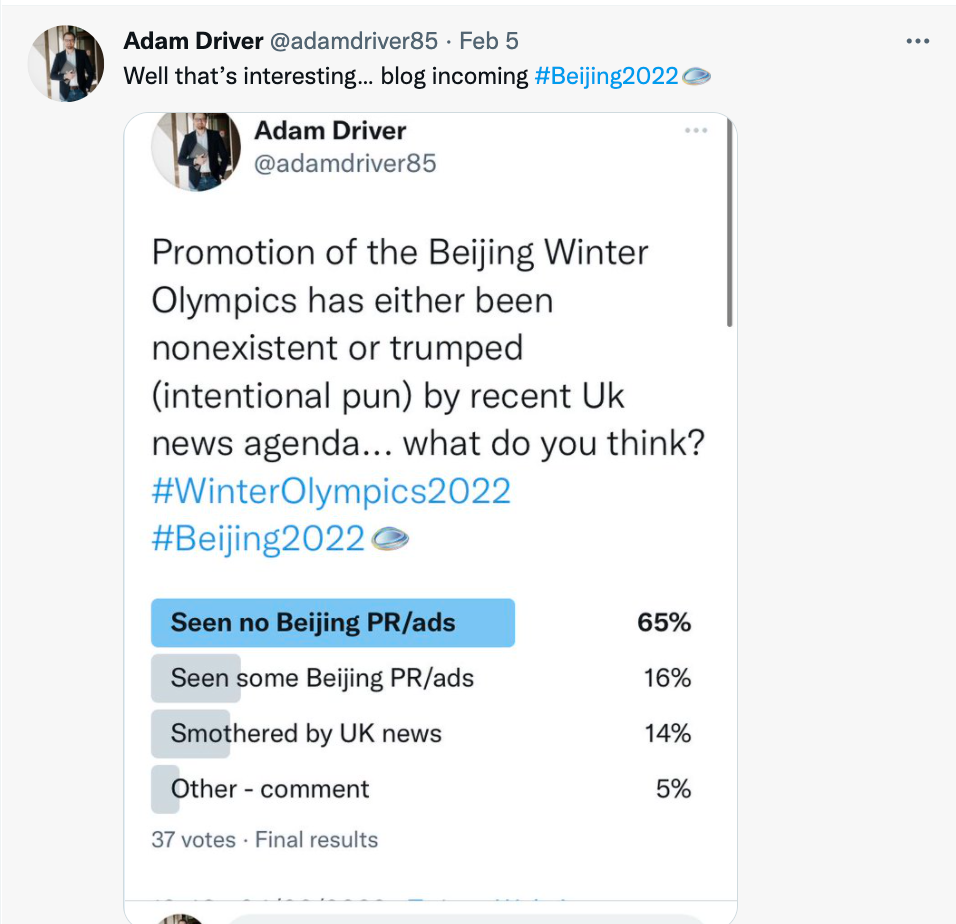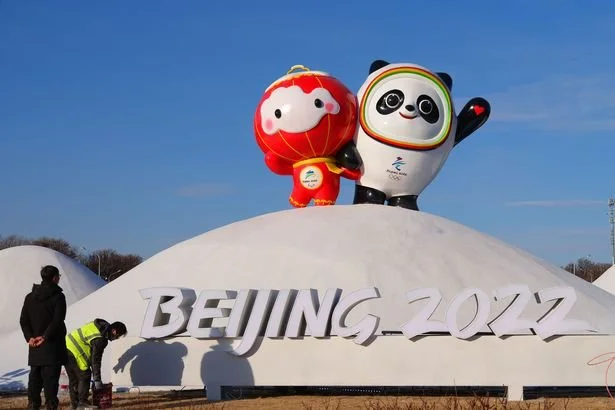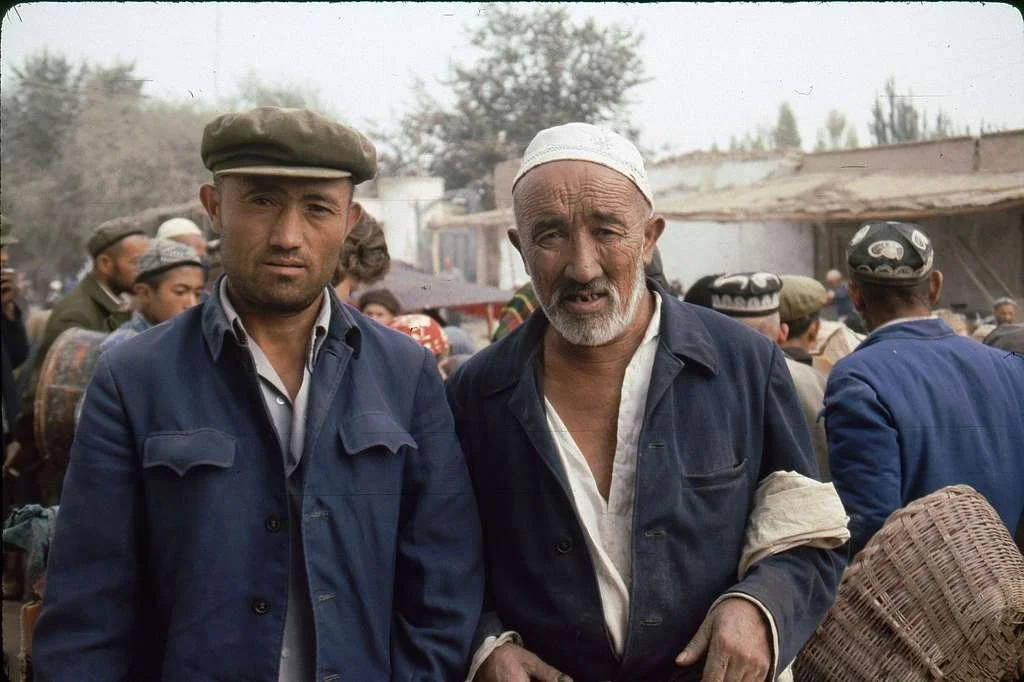This year, the coverage around the Winter Olympics have been decidedly subduded.
After a Twitter poll (ugh, yes, sorry), it started me down a rabbit hole, in part thanks to Gihan and Nick’s insight.
So, here’s a very brief summary of some of the reasons why we’re not seeing much about the Beijing Winter Olympics 2022. Some may seem obvious – human rights etc – but are we seeing a sea change in the way sports and politics/purpose intersect and evolve?
Or is the lack of TV coverage, diplomatic controversy, Chinese human rights issues, brand sponsorship worries and unsustainable fake snow just par for the modern course?
Why is there little to almost no Winter Olympics TV coverage on the BBC?
So, there are a few things going on in the UK right now – waves arms around wildy – yet sport used to be a staple of telly listings, especially the peaks of interest from the general public in obscure sports that we may actually win. See curling and skeleton (Lizzy Yarnold and Amy Williams).
[Help me out sports comms folk…]
The BBC does have coverage, yet it is most certainly reduced. So why?1
In three words, commercial TV rights. See quote below from iNews piece from last year, about why the BBC’s Olympics coverage has changed (“Why the BBC’s Olympics TV coverage is limited to two live streams: Tokyo 2020 Discovery deal explained”), which is a better explainer than I could do:
“
In 2015, the International Olympic Committee and American TV giant Discovery agreed a £920m deal for “all TV and multi-platform broadcast rights in Europe” of the four Olympic Games in the 2018-2024 period.
For the UK this applied from 2020, meaning the delayed Tokyo Games is the first instance where viewers in the country have come across this change.
Discovery, who own Eurosport, were required by the IOC to make hundreds of hours free-to-air, and while the company is able to do so though their own channels in countries including Norway and Sweden, no such free-to-air channel exists in the UK. As a result, Discovery agreed to sub-license the rights to BBC.”
Why is the Beijing Winter Olympics controversial?
Gone for bullets here for ease. There’s a lot.
Human rights – how long have you got?! Beijing is being called out over human rights abuse in Taiwan, anti-Chinese protesters in Hong Kong, and documented abuse of the largely Muslim Uyghur population in the Xinjiang region.
Diplomatic boycotts – remember similar in Sochi back in 2014? “The US, UK and Canada have declared a diplomatic boycott, along with India, Australia, Lithuania, Kosovo, Belgium, Denmark and Estonia. All countries have sent athletes (which legitimises it?), but no officials or ministers are in attendance.
Covid-19 – no general public due to coronavirus restrictions. And a zero-Covid dilemma.
Economic division – Countries such as the Philippines, South Korea and many in Africa are unable to boycott due to fear of what the economic fallout could be.
Sustainability – fake snow for one. “About 1.2 million cubic metres of artificial snow is being used because so little falls in the region.” The environmental impact is said to be monumental. More here.
Cybersecurity/phone hacking – Cybersecurity group Citizen Lab said the app for Covid monitoring is a risk to use, with weak encryption systems and could be exploited by hackers.
Several countries have reportedly told athletes to leave their main devices at home and use burner phones at the Games.
Plenty more in this explainer piece from the Beeb. Looking forward to the Ros Atkins explainer.
What are the Beijing 2022 sponsors doing?
In short, not much. Thanks Gihan of Communique for the heads up on this.
Some really interesting pieces here, for anyone involved in marketing, advertising and sponsorship. How does a brand handle issues such as the above…?
Wall St Journal: Adidas Takes Hit From Boycott in China, Once Seen as a Growth Engine
Reputation at risk for sponsors – great quote from Andrew Crane of Bath Uni below in France 24:
"Companies including Airbnb, Alibaba, Allianz, Atos, Bridgestone, Coca-Cola, Intel, Omega, Panasonic, Procter & Gamble, Samsung, Toyota and Visa have paid a combined $1 billion to help fund the 2022 Winter Games, despite widely reported ethical issues.
“Once they committed to sponsoring the Olympics, they committed themselves to walking an ethical tightrope,” Andrew Crane, professor of business and society at the University of Bath, told FRANCE 24. “There are risks either way.”"
Let me know what you think, and how you would advise an organisation in a similar position? Look forward to hearing your thoughts below/respond on LinkedIn/Twitter ✌️







